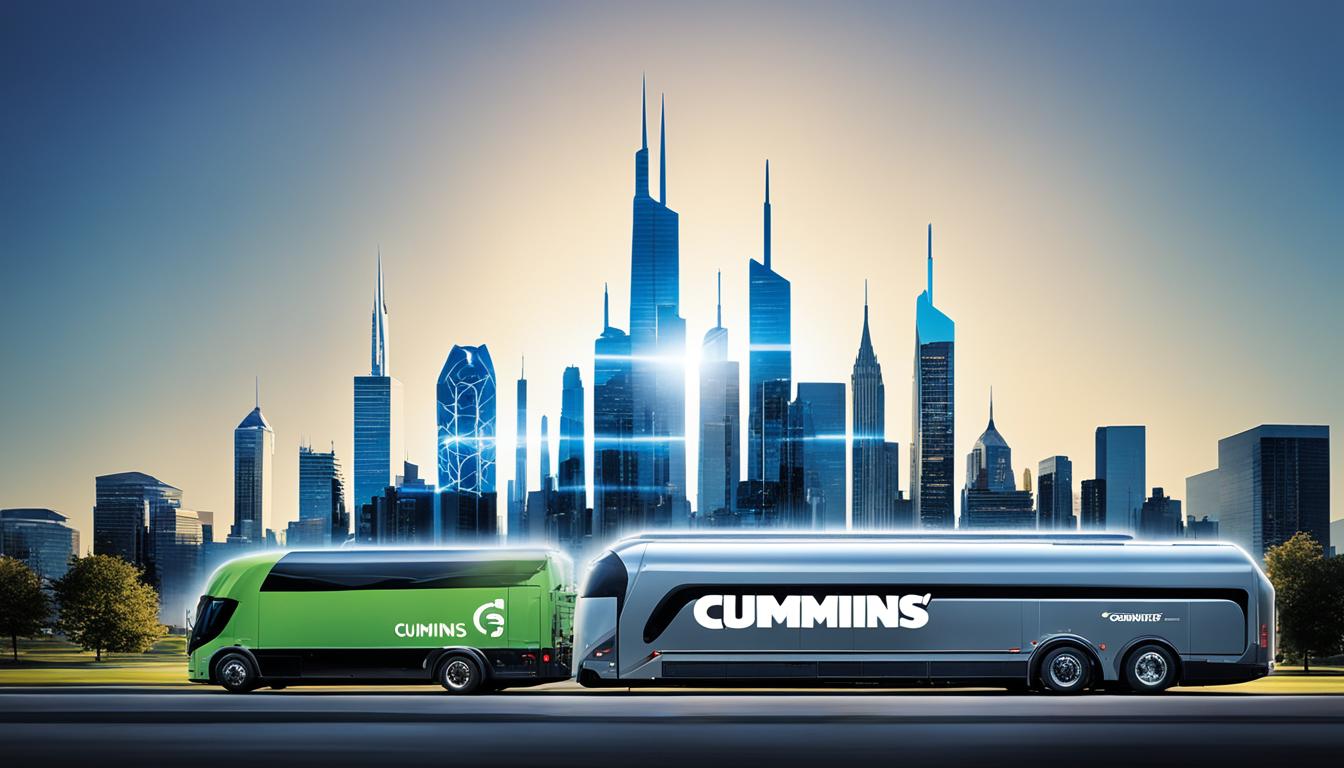Biedronka, the largest retail chain in Poland, has established itself as a dominant force in the country’s market through its strategic marketing initiatives. With a focus on affordable prices, targeted promotional campaigns, and a customer-centric approach, Biedronka has successfully positioned itself as a trusted and accessible brand for Polish consumers.
Through extensive market analysis and an understanding of the competitive landscape, Biedronka has been able to effectively segment its target audience and develop tailored marketing tactics to meet their needs. Their advertising strategies emphasize their commitment to quality food, local sourcing, and competitive pricing, resonating with consumers across the country.
Key to Biedronka’s success is its brand positioning, which has evolved over the years to cater to changing consumer preferences. The company has invested in store organization, attractive displays, and an extensive range of quality products, ensuring an enjoyable shopping experience for customers.
Key Takeaways:
- Biedronka’s marketing strategy is centered around affordable prices, targeted promotional campaigns, and a customer-centric approach.
- Extensive market analysis and understanding of the competitive landscape enable Biedronka to effectively segment its target audience.
- The company’s advertising strategies emphasize quality food, local sourcing, and competitive pricing.
- Biedronka invests in store organization, attractive displays, and a diverse range of quality products to enhance the shopping experience.
- By continuously adapting to changing consumer preferences, Biedronka has successfully positioned itself as a trusted and accessible brand in Poland.
Biedronka’s Competitive Battle with Lidl
In the highly competitive retail landscape of Poland, Biedronka has found itself locked in a fierce battle with its rival, Lidl. These two retail giants are constantly striving to outdo each other, particularly in terms of product prices. This intense competition has taken on various forms, from legal disputes to heated debates over who offers the best discounts.
Recently, Lidl launched its “Lidl Price Review” campaign, showcasing their consistent lower prices compared to Biedronka. This advertising campaign aims to position Lidl as the ultimate destination for cost-conscious shoppers, challenging Biedronka’s long-standing dominance in the market. The price competition between these two retail giants reflects the competitive nature of the retail industry and the importance of marketing analysis and competitive tactics.
The Battle of Price: Biedronka vs Lidl
- Biedronka and Lidl engage in a price war, competing to offer the best product discounts.
- The ongoing competition sparks legal conflicts and debates over cheaper prices for specific products.
Advertising Campaigns: Biedronka and Lidl
- Lidl’s “Lidl Price Review” campaign highlights their consistent lower prices compared to Biedronka.
- Biedronka and Lidl deploy various advertising strategies to attract customers and gain a competitive edge.
Price Comparison: Biedronka and Lidl
- Consumers compare prices between Biedronka and Lidl to make informed shopping decisions.
- Biedronka and Lidl’s price comparison influences consumer perceptions and brand preferences.
This battle between Biedronka and Lidl showcases the competitive landscape of the retail industry in Poland. Both retailers strive to offer the best deals to attract and retain customers. However, in this price-driven competition, it is ultimately the consumers who benefit from the fierce rivalry between these two retail giants.
Biedronka’s Focus on Customer Loyalty
A key factor in Biedronka’s and Lidl’s dominance in the Polish market lies in their strong focus on customer loyalty. Both retailers have implemented robust loyalty programs that have proven successful in attracting and retaining customers. By tailoring their offerings and emphasizing personalized discounts, Biedronka and Lidl incentivize customers to choose their stores for great deals, fostering loyalty and shaping shopping habits.
These loyalty programs go beyond simple discounts and promotions. Biedronka and Lidl prioritize understanding and catering to customer preferences. By collecting data on consumer behavior and preferences, they can provide targeted offers that are relevant and appealing to individual shoppers. This customer-centric approach not only strengthens brand loyalty but also minimizes the need for customers to visit other stores, as they are confident that they will find the products they want at competitive prices.
Strategic advertising campaigns that highlight low prices serve to reinforce the perception of Biedronka and Lidl as cost-effective options. By consistently promoting their affordability, these retailers influence consumer perceptions and solidify their position as go-to destinations for budget-friendly shopping. This resonates with budget-conscious consumers, who are more likely to choose stores that prioritize their financial well-being.
The emphasis on customer loyalty and satisfaction showcased by Biedronka through their loyalty programs and customer-centric approach demonstrates the significant role these aspects play in the company’s marketing strategy. By consistently delivering value and personalized experiences, Biedronka establishes a strong connection with their customers, driving customer retention and ensuring their ongoing success in the competitive retail landscape.
The Benefits of Biedronka’s Loyalty Programs:
Below are some key benefits of Biedronka’s loyalty programs:
- Personalized discounts and offers tailored to customer preferences
- Enhanced customer satisfaction and loyalty
- Minimized need for customers to visit other stores
- Positive brand perception as a cost-effective option
- Influences consumer perceptions and brand preference
- Strengthened customer relationship through targeted advertising
The focus on customer loyalty has undoubtedly been a critical aspect of Biedronka’s success, allowing them to maintain a significant market share and emerge as the leading retail chain in Poland.
The Book “United by Biedronka”
Biedronka proudly presents “United by Biedronka,” a captivating book that takes readers on a remarkable journey through the company’s 25-year history. This insightful publication offers an exclusive behind-the-scenes look at Biedronka, featuring interviews with employees, customers, and the author, who delved deep into the company for nine months to bring its story to life.
“United by Biedronka” sheds light on both the challenges and triumphs that have shaped the company, celebrating its ability to overcome obstacles with resilience and determination. Through captivating stories and vivid experiences, the book showcases Biedronka’s unwavering commitment to its people, emphasizing the dedication of its employees and their role in the company’s success.
The book provides a unique glimpse into the reality of Biedronka, unraveling the company’s journey from its humble beginnings to becoming the leading retail chain in Poland. It offers readers an opportunity to explore the inner workings of Biedronka and its unwavering dedication to serving customers with affordable, high-quality products.
Through its genuine and heartfelt accounts, “United by Biedronka” showcases the impact this retail giant has had on individuals, communities, and the broader society. It offers a comprehensive exploration of the company’s rich history, giving readers a deeper appreciation for the passion and commitment that have fueled Biedronka’s growth and success.
Discover the compelling story of Biedronka’s rise to prominence and the insights gained from those who have been a part of its incredible journey. Immerse yourself in the pages of “United by Biedronka” and gain a newfound appreciation for the brand that has become a household name in Poland and beyond.
Biedronka’s History Milestones
| Year | Significant Event |
|---|---|
| 1995 | Opening of the first Biedronka store |
| 2000 | Biedronka reaches 500 stores milestone |
| 2005 | Launch of Biedronka’s loyalty program |
| 2010 | Expansion into international markets |
| 2015 | Introduction of organic and sustainable product lines |
| 2020 | Biedronka becomes the largest retail chain in Poland with over 3,000 stores |
Biedronka’s Strength in Problem-solving
Biedronka has established itself as a retail powerhouse in Poland, and one of the key factors contributing to its success is its exceptional problem-solving skills. When faced with challenges and crises, Biedronka has consistently shown resilience, adaptability, and an unwavering determination to overcome obstacles and emerge stronger.
The company’s approach to problem-solving is grounded in its commitment to finding innovative solutions and learning from failures. Biedronka understands that setbacks are opportunities for growth and improvement, and it leverages these experiences to continually refine its strategies and operations.
Through effective crisis management, Biedronka has successfully navigated turbulent times, ensuring minimal disruption to its operations and maintaining its position as the leading retail chain in Poland. By swiftly identifying and addressing issues head-on, Biedronka has managed to mitigate risks and rebound quickly from setbacks.
One notable example of Biedronka’s problem-solving abilities is detailed in the book “United by Biedronka,” where the company’s dedication to finding creative solutions to complex challenges is highlighted. The book features anecdotes and insights from employees, shedding light on how Biedronka’s problem-solving culture permeates every level of the organization.
Whether it’s streamlining supply chains to deliver products efficiently, addressing customer concerns promptly, or optimizing its marketing strategies to stay ahead of competitors, Biedronka’s problem-solving prowess has been instrumental in its long-term success. By constantly learning and adapting, Biedronka remains agile in the face of changing market dynamics.
In conclusion, Biedronka’s strength in problem-solving, crisis management, and resiliency is a key factor in its market dominance. The company’s commitment to continuous improvement and learning from failures ensures that it can effectively overcome obstacles and emerge stronger in the highly competitive retail industry.
Biedronka as a Cultural Bridge
Biedronka’s success in Poland extends beyond its business strategies. The company’s ability to understand and adapt to the Polish market has been instrumental in its achievements. “United by Biedronka,” the book that delves into the company’s journey, highlights the cultural exchange between the Polish and Portuguese teams. This collaboration between different cultures played a vital role in tailoring the store experience to the preferences of Polish customers.
Understanding the local culture is crucial for any business to succeed in a foreign market. Biedronka recognizes this and has embraced it through the Polish-Portuguese connection. By leveraging cultural exchange, Biedronka has been able to meet the needs and expectations of Polish customers effectively.
The collaboration between the Polish and Portuguese teams within Biedronka has not only fostered cultural exchange but also enabled them to complement each other’s strengths. This synergy has allowed the company to navigate the intricacies of the Polish market and adapt its offerings accordingly.
From product selection to store layout and marketing campaigns, Biedronka’s understanding of the cultural nuances and preferences of Polish customers has made it a beloved supermarket chain in the country. By utilizing the knowledge and expertise gained through the Polish-Portuguese connection, it has successfully translated its international experience into a tailored and effective strategy for the local market.
The Power of Cultural Exchange
- Facilitates localization of offerings
- Enhances customer engagement
- Enriches marketing campaigns
- Strengthens brand positioning
The Impact of Biedronka’s Marketing Strategy on Customer Experience
Biedronka’s marketing strategy goes beyond offering low prices; it is also focused on delivering a positive customer experience. The company has transformed its stores from basic warehouses into organized and aesthetically pleasing spaces that cater to the needs and preferences of their customers.
One aspect of Biedronka’s customer experience strategy is the improvement of store layouts. They have carefully designed their stores to be easy to navigate, with clear signage and well-defined sections. This makes it effortless for customers to find what they need, enhancing their overall shopping experience.
Biedronka also understands the importance of showcasing a diverse range of products. By offering a wide selection of items, they cater to the varied preferences of their customers. This not only increases customer satisfaction but also promotes customer loyalty, as customers can consistently find the products they desire at Biedronka.
Another crucial element of Biedronka’s customer experience strategy is their emphasis on friendly interactions between employees and customers. The company recognizes that positive employee-customer interactions enhance the overall shopping experience. From warm greetings to helpful recommendations, Biedronka employees strive to create a welcoming and pleasant atmosphere for customers.
The book “United by Biedronka” explores the significance of these employee-customer interactions. It dives into the experiences and stories of Biedronka employees, highlighting their dedication to providing exceptional customer service. This emphasis on personalized and friendly interactions fosters customer loyalty and contributes to an enhanced shopping experience.
Overall, Biedronka’s marketing strategy focuses on creating a positive customer experience through well-designed store layouts, a diverse product range, and friendly employee-customer interactions. By prioritizing customer satisfaction, Biedronka has established itself as a leading retail chain in Poland.
Biedronka’s Long-Term Business Approach
Biedronka’s long-term business approach has been instrumental in its success as the largest retail chain in Poland. The company’s ability to overcome challenges and adapt to the changing needs of customers has set the foundation for sustained growth and profitability.
One of Biedronka’s key long-term goals is to ensure business sustainability. The company understands the importance of balancing economic, environmental, and social factors in its operations to create a positive impact on society and the environment. By prioritizing sustainable practices, such as sourcing local food products and supporting local farmers and producers, Biedronka contributes to the resilience of the Polish food industry.
Additionally, Biedronka’s growth strategy focuses on problem-solving and continuous improvement. The company embraces challenges as opportunities to learn and evolve, allowing it to stay ahead of the competition. Biedronka’s commitment to problem-solving, coupled with a culture of resilience and learning from failures, has fostered innovation and enabled the company to navigate through crises effectively.
The book “United by Biedronka” provides valuable insights into the company’s long-term goals and strategies. It showcases how Biedronka’s adaptation, learning, and perseverance have shaped its success over the years. By highlighting the company’s dedication to sustainability, problem-solving, and employee satisfaction, the book offers a deeper understanding of Biedronka’s unique approach to business.
Biedronka’s long-term business approach sets it apart as a leader in the retail industry. The company’s focus on sustainability, problem-solving, and employee dedication paves the way for continued growth and success in the future.
Conclusion
In summary, Biedronka’s success as the largest retail chain in Poland can be attributed to several key factors. The company’s marketing strategy, characterized by affordable prices, customer loyalty initiatives, and problem-solving skills, has propelled Biedronka to the forefront of the industry. By focusing on democratizing access to quality food and supporting local producers, Biedronka has improved food security and affordability in the country.
Furthermore, Biedronka’s commitment to providing a positive customer experience has greatly influenced the Polish market. Through store improvements, diverse product ranges, and friendly employee-customer interactions, Biedronka has created a shopping environment that resonates with consumers. The impact of Biedronka’s marketing efforts can also be seen in its long-term business approach, which emphasizes sustainability, adaptation, and continued growth.
Looking ahead, Biedronka’s future prospects remain promising. With its well-established success factors, such as affordable prices, customer loyalty, and problem-solving capabilities, the company is positioned for continued growth and success. As Biedronka continues to adapt to changing market dynamics and maintain its commitment to providing quality food and a positive customer experience, it is poised to further enhance its market impact and solidify its position as a leader in the retail industry.






